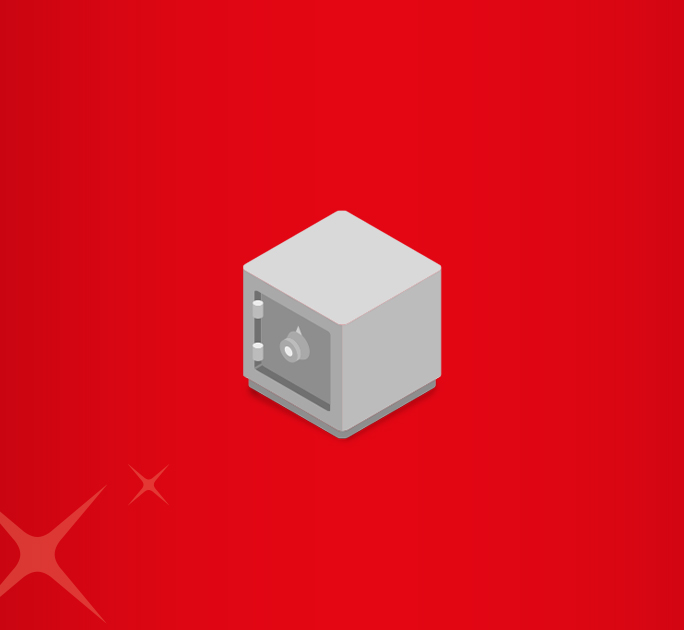- Save
- Invest
- Borrow
- Pay
- More
- Customer Services

What is a Recurring Deposit?
What is a Recurring Deposit? Here’s Everything You Need to Know
Key Takeaways
- Recurring Deposits (RDs) offer FD-like returns on smaller, regular investments.
- RDs allow you to invest money in instalments.
- RDs earn higher interest compared to Savings Bank Accounts.
- Recurring Deposits help you develop the habit of saving regularly.
- You can open an RD if you are a Resident Indian (10+ years old) or a Non-Resident Indian.
Introduction
Many believe, 'Little drops of water make the mighty ocean,' meaning that consistent efforts in small things can lead to substantial results.
This saying perfectly describes Recurring Deposits, a type of bank account where you invest a fixed amount of money at regular intervals over a specified period. Each deposit you make is like a drop of water that, over time, accumulates into a larger amount (like the vast ocean). This habit of saving regularly, even with modest amounts, can greatly help you achieve your financial goals in the future.
Let's understand this investment tool, exploring the types, features, and benefits of RDs. But first, let’s define “What is a Recurring Deposit?”
What is a Recurring Deposit account?
A Recurring Deposits is a type of term deposit where customers invest money in regular instalments. Instead of depositing the entire amount at once, RD holders invest a fixed sum at regular intervals for a specified tenure.
Many investors prefer safe instruments that provide a steady income, and Recurring Deposits are popular among these options. The interest rates offered on RDs are comparable to those on Fixed Deposits (FDs) provided by banks. This allows investors to earn significant interest even on modest deposit amounts.
Here are the features of an RD:
- Deposit a fixed amount each month to build your savings habit.
- Start an RD with as little as ₹100.
- Choose a term, typically ranging from 6 months to 10 years.
- Earn interest on your deposits, compounded quarterly.
- Make payments daily, monthly, or quarterly online.
- Your deposits are insured by the Deposit Insurance and Credit Guarantee Corporation (DICGC) up to ₹5,00,000.
- Senior citizens get 0.50% higher interest rates by providing ID and age proof.
RDs act as an excellent investment vehicle for cultivating the habit of regular savings and earning guaranteed returns. They are suitable for both short and long-term financial goals.
RD tenure and eligibility requirements
The term for Recurring Deposits generally ranges from 6 months to 10 years. Banks mostly ask customers to deposit money in RDs every month, but some financial institutions may also give the option of investing on a quarterly or half-yearly basis. The interest is mainly compounded quarterly and paid on maturity.
Almost everyone can open an RD account in India with any major bank or Non-banking Finance Company (NBFC):
- Minors aged 10 and above can open an account under the bank's terms, or parents/guardians can open accounts for younger minors.
- Non-resident Indians are eligible.
- Joint accounts can be opened by multiple individuals.
- Government organisations can open RD accounts.
- Clubs, associations, educational institutions, partnerships, and joint stock companies can open accounts if they are registered, and the bank verifies the purpose of the savings.
Benefits of RDs
When it comes to saving money, there are several investment options that customers can choose from. However, Recurring deposits are increasingly gaining popularity among investors because of the following benefits they offer:
- RDs make it possible for investors to earn attractive FD-like returns, even on small-ticket investments.
- This type of deposit account helps investors develop the discipline of saving money at regular intervals.
- RDs offer guaranteed returns, unlike other monthly investment schemes like systematic investment plans (SIPs) offered by mutual funds.
- Most banks offer loan facilities to customers against their RD accounts. Customers can avail as much as 95% of the amount parked in their RD as a loan, but the rate may vary from bank to bank.
- You can create RDs of small amounts, and your monthly instalment can be as low as ₹100, ₹500, ₹1,000 etc., depending on the bank with which you choose to open the RD.
- There is no risk of capital erosion. The bank pays you back the entire sum invested, plus the interest amount, when the RD matures.
RD Renewals and Considerations
Besides knowing the benefits of RDs, it's essential to be aware of other considerations related to these accounts.
- Premature Withdrawal: You can withdraw your RD before its maturity. A 1% fee will be charged for this.
- Partial Withdrawl: Banks do not allow partial withdrawals from your RD. If you need to access funds before maturity, you must close the account early and pay a penalty.
- Loan Against RD: Some banks allow you to take a loan against your RD. The terms and conditions for such loans will vary based on your chosen bank.
- Nomination: You can nominate a beneficiary for your RD account. You also have the flexibility to change the nominee at any time during the RD period.
Recurring deposit schemes
Now that you understand "What is an RD in a bank?”, let's explore its schemes.
Banks often design special Recurring Deposit schemes with attractive features to suit the needs of various investors. For instance, many banks offer a flexible Recurring Deposit where customers have the option to skip an instalment without paying any penalties, or they may have the opportunity to deposit a different amount to their RD account at each instalment.
There are special RD schemes for minors, the elderly, and Non-Resident Indians (NRIs). Some common types include:
- Regular Recurring Deposit Account
Indian citizens or permanent residents over 18 can open a regular RD account. They can earn a fixed interest rate on the principal amount deposited monthly for a specified period. Interest is calculated using compound or simple interest, depending on the account's duration.
- Recurring Deposit Account for Minors
Minors under 18 can have RD accounts opened with parental supervision. Like a regular RD, you select a fixed monthly deposit amount and a specified term when opening the account.
- Recurring Deposit Account for Senior Citizens
Individuals over 60 can open specialised RD accounts at banks. These accounts often offer higher interest rates (0.50% higher) than regular RD accounts. Other aspects, like the investment period, interest rate, and principal amount, are the same as regular RD accounts.
- The NRE/NRO Recurring Deposit Account
Non-resident Indians can use Non-Resident External (NRE) and Non-Resident Ordinary (NRO) accounts to open RD accounts. Funds from an NRE account can be used for this purpose. A key benefit for NRIs is that they do not have to pay Indian income tax on their NRE RD deposits.
Recurring Deposit Interest Rates
Recurring Deposits are a popular investment option in India, offered by most banks and financial institutions. Therefore, the interest rates on RDs are competitive. These rates are typically between 4% and 8% and vary based on current market conditions at the time of account setup.
Recurring Deposit interest rates can differ with the bank, the tenure of your deposit, and your age. For instance, senior citizens often benefit from higher Recurring Deposit interest rates than regular RD schemes.
You can easily calculate your RD returns using an RD calculator. This tool helps you understand the maturity amount you'll receive based on your investment amount, interest rate, and tenure.
Difference between recurring and fixed deposits
- FDs are meant for individuals who have sufficient savings and can invest a lump sum amount. Conversely, RDs are meant for those who want to create savings by regularly investing a small portion of their income.
- Investors can open an FD for a minimum duration of 7 days and a maximum of about ten 10. Meanwhile, the minimum tenure for an RD is six months, and the maximum is ten years.
- FDs can prove to be a good source of regular income as they mostly allow monthly, quarterly, or annual payouts. On the other hand, RDs are ideal for people looking to build a corpus gradually, as interest payout for RDs happens only upon maturity of the scheme.
- Tax-saving FDs with tenures of 5 years and above offer benefits in which you can get tax deductions on the interest earned under section 80C of the Indian Income Tax Act, 1961. As for RD investments and regular FDs, you have to pay taxes on the interest income as per your income tax slab.
Key Factors to Consider Before Opening Recurring Deposits
Consider these factors before opening your RD Account:
- Investment Term:
RDs have a fixed period, typically 6 months to 10 years. Choose a period that caters to your financial goals - shorter for immediate needs, longer for goals like retirement or education.
- Interest Rate:
Recurring Deposit interest rates vary by bank, so compare before opening an RD. Use an RD calculator to estimate earnings based on the rate and period. Opt for a bank offering competitive rates for maximum returns.
- Early Withdrawal Penalty:
Many RDs charge a penalty if you withdraw before the term ends. Factor this in, especially if you need access to funds early.
- Deposit Frequency:
RDs require regular deposits (monthly, quarterly, annually). Choose a frequency that fits your budget - monthly for smaller amounts, quarterly or annually for larger sums.
- Tax Considerations:
Interest earned on RDs is taxable. If you're in a higher tax bracket, explore tax-saving options like Equity-Linked Saving Schemes (ELSS) for better returns.
Final note
Now that you know what a Recurring Deposit is, along with its features and benefits, you can consider this investment vehicle to build savings. Recurring Deposits are ideal for people who prefer to make investments in smaller instalments. It also inculcates the habit of saving money with discipline. Remember to select a bank offering competitive Recurring Deposit interest rates before investing.
Download DBS Bank app to open a recurring deposit and see your dreams take shape. Also, you can open bank account online with us.
-
Is it possible to withdraw from RD at any time?
Yes, it is possible to withdraw from a Recurring Deposit before its maturity. However, there may be penalties involved.
-
Can I terminate my Recurring Deposit before the term ends?
Yes, you can terminate your Recurring Deposit before the term ends. However, there might be a fee, typically around 1%, charged by the bank for early withdrawal.
-
Can I add additional nominees to my Recurring Deposit account?
Yes, you can nominate a beneficiary for your Recurring Deposit account. You can also change the nominee at any time during the RD period.
*Disclaimer: This article is for information purposes only. We recommend you get in touch with your income tax advisor or CA for expert advice.












